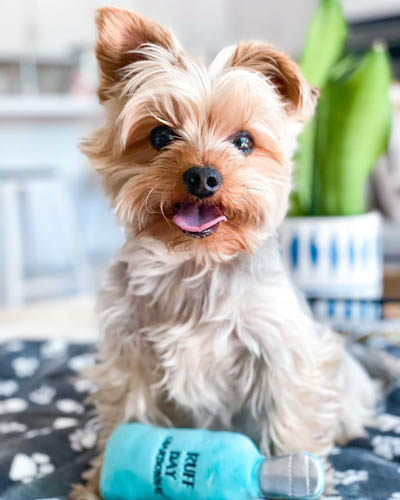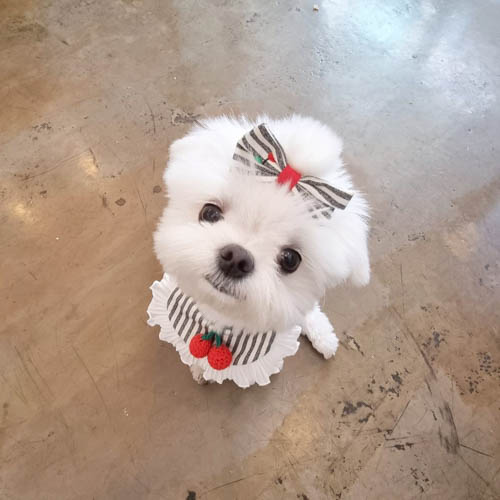Larger dogs often find a spot on the couch, while smaller dogs generally need to be near their owners at all times. While this might seem like an excellent way to keep pets happy, it can lead to some nasty behavior.
One example of this is the dog that takes up an entire seat on an airplane, depending on its size. Another example is the tiny dog that grows to be a terrifyingly large animal, attacking those that dare to pick them up.
You know, when smaller dogs get into fights with bigger dogs, they may not have anything to prove, but sometimes it’s hard to see why they are so aggressive.
It’s like, small dogs should run away from bigger dogs for obvious reasons. But, if you see smaller dogs become aggressive, you’ll realize some of them have a hidden motive to be bold. And here are some reasons why:
1. Self-defense

Dogs have a reputation of being quite mellow, and that’s not entirely inaccurate. They generally have good social skills and are often very friendly towards both humans and other animals.
However, dogs are very territorial, and if they feel threatened, they tend to act aggressively to protect themselves and their family. This is especially true if small dogs believe larger dogs are threatening them.
Small dogs are more aggressive than bigger dogs as their Self-defense. In this case, small dogs are more like to bite when strangers and family members are touching them. These small dog bites can be very dangerous and can cause serious injuries.
However, these small dog bites are not always fatal. The main reason behind these small dog bites is that small dogs are more aggressive than bigger dogs. They are more likely to be afraid when strangers and their family members touch them, and they may feel threatened.
Small dogs are more aggressive than bigger dogs as their self-defense mechanism is decreased when they are smaller. The reason being is small dogs are not able to overpower larger dogs.
2. Owner’s behavior

Small dogs are known to be more aggressive than large dogs. There is a general belief that small dogs are more aggressive than large dogs because they are smaller. But is this true?
A recent study published in the journal Appetite showed that the size of a dog is not necessarily the determining factor in dog aggression. Specifically, the study showed that the dog’s aggressive behavior was directly related to the owner’s behavior.
The world of dogs and pet owners is full of ups and downs. The changes in the owner’s behavior that can upset the entire picture are numerous and complicated.
They include, among others: the lack of knowledge about dog breeds and their many differences, the lack of knowledge about dog behavior and the behavior of small dogs, the lack of expertise that small dogs need different care and attention than larger dogs, and the lack of understanding of the dog’s needs and behavior in different situations.
As many dog owners know, small dogs can be just as aggressive and determined as their larger counterparts. This is not because of their size but rather the fact that, in many cases, small dogs are often more independent than those with larger breeds. This can cause problems for small dog owners since their pets may not always be eager to listen to their commands.
The small dog in your life may be friendly, sweet, and cuddly, but it can still be vicious and capable of biting. Why? It can be because they are so tiny, they are not yet mature enough to know how to control their body, are needy, are embarrassed, have just been abused, and are just plain bored.
The bottom line is that you need to be a dog’s guardian and friend if you want to ensure that they don’t bite. The behavior of small dogs can vary, but in general, they are friendly, playful, and loving pets.
However, small dogs are sometimes so energetic, and they can be difficult to control. Knowing how to train your small dog to be calm and friendly is the key to a happy relationship with your pet.

3. It is in their genes
Dogs can present with a range of aggressive behavior, including snapping at people, growling, and even biting. While this is not common, it does happen. To better understand why small dogs can be so fierce, it is important to understand aggression in general.
Aggression has many components, including arousal and response, in addition to the situation and individual differences. Other factors such as genetics, hormones, and early socialization may also contribute to aggression in dogs.
4. Frustration or separation anxiety
Dogs generally put up with a lot of frustration at home, which can cause aggression to help them cope. Aggression is an understandable response to a serious situation, and the dog may not even realize they are angry.
If you notice your dog is becoming aggressive, it is important to give them time to calm down before disciplining them. Small dogs are a favorite pet for countless people. They are easy to take care of and are very cute.
However, some small dog traits are difficult to see, and it’s unavoidable for any dog owner to be familiar with, such as dog aggression.
Since small dogs are generally more sensitive to external stimuli, they can be more aggressive. Any dog owner should always ensure that their dog is not suffering from any form of aggression or behavioral issues.
Why are small dogs more aggressive than bigger dogs?

A common myth is that small dogs are more aggressive than larger breeds. The truth is, the biggest dogs do not have the highest likelihood of becoming aggressive, while there are always exceptions to the rule.
The truth is that size alone does not determine the likelihood of a dog becoming aggressive. The dog’s temperament and upbringing will determine the size of the dog.
Dogs are a nice way to spend time with your family, but one dog can often be more trouble than the other. Small dogs are more likely to bite since they feel threatened by other dogs, and they may be less interested in playing ball than their larger counterparts.
Small dogs, or micro dogs, are generally considered to be under 25 lbs. (12 kg) when they are mature. These dogs are so small that they have been referred to as “pocket dogs,” “pocket terriers,” and other names. Small dogs are tiny but very agile and tend to be very playful and energetic.
Because of their size, small dogs are often considered more vulnerable to dangers in the environment, so their size is thought to have developed for protection.
One of the most common questions that pet owners ask us is why their dog is so aggressive. The answer is pretty simple — it is in their genes.

While a small dog may have a greater chance of being picked on by smaller dogs, they will not be the ones to initiate the aggression. If your dog is aggressive, you are probably dealing with a dog that feels threatened.
The dog will often exhibit aggression to intimidate the other dog. It is pretty obvious then that if you want a less aggressive dog, you should choose a dog that has been bred not to be aggressive by keeping the small dogs out of your yard.
Sometimes, being a small dog is hard enough. Having other dogs or people invading your space can make life more difficult. You have to be on high alert to make sure your small dog doesn’t get into a fight.
An easy way to prevent small dog aggression is by training. Training will help lessen the intensity of aggression that small dogs display. It will also provide you with a better understanding of how to communicate with your little adorable.
Small dogs can be aggressive and are not always the best choice for families with young children. The problem for most small dogs is that they tend to get away with things that larger dogs won’t, and that means they can bite or nip children and adults from time to time.
So, what’s the best way to prevent small dog aggression? One of the best things you can do is train your small dog to understand his role in your family.
If you have a small dog, you may have thought about how to lessen its aggression. There are things that you can do to make your dog a happier and less aggressive dog. You can also invest in a dog training collar, and the right dog training collar will help your small dog be more friendly, calm, obedient, and healthy.
